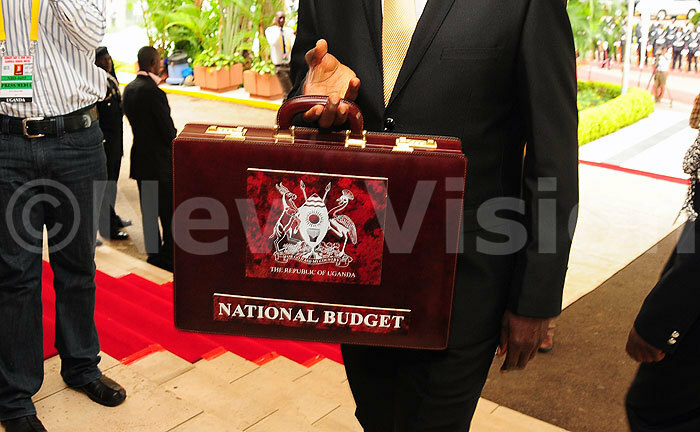As it happened: National Budget reading
Build-up to the reading of the 2016/17 national budget.
Live reporting by Joseph Kizza (@joekizza)
Summary
- Minister Matia Kasaija presented sh26.361 trillion budget
- Biggest share of budget goes to interest payment
- Works and transport sector takes sh3.827 trillion
- Salaries for primary + secondary teachers, lecturers will be increased
- Taxes on agricultural equipment are waived
- Higher taxes on personalized number plates
|
The 10th Parliament is adjourned until next week Tuesday after the President's remarks. Singing of anthems wraps up today's session. |
6.07pm: 'Nobody can disrupt Uganda'
Museveni quips that: "I fight well in the bush. Here in the town, I fight better with my young friends."
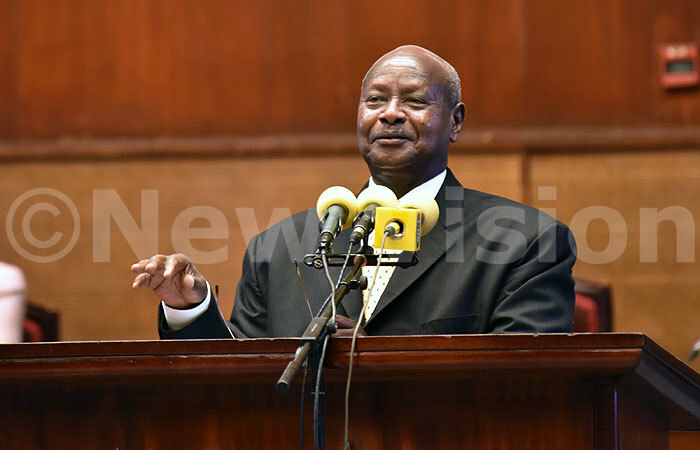
On security, he says no-one can disrupt Uganda. "If anybody wants to disrupt a country, they should look for another address. Not here," he says, drawing thunderous applause.
6.05pm: Uganda's rule of law 'best in the world'
Highlights from President's closing speech:
- The President says that those who did shoddy work in the road sector "will pay" and that the "casualties" will be seen.
- Museveni says that when it comes to borrowing, Uganda is is borrowing but that "we are still within the safety parameters".
- Ugandans must change their attitude, says the President and adds that the "rule of law in Uganda is the best in the world. We shall talk about this another time".
- He also touches on telecoms and tax evasion. He says such companies make three million calls from outside but declare only half a million. Museveni says that the country is getting high-tech equipment to trace calls made from outside.
- On electricity, he was Uganda will have electricity in all districts, at least to all district headquarters. "That's progress."
5.47pm: Minister concludes sh26.361 trillion budget presentation
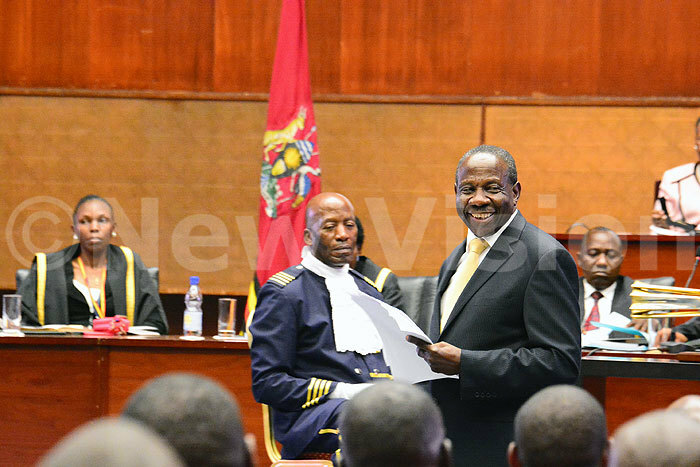
In his conclusion, Minister Kasaija says: "Madam Speaker, in conclusion, I wish to commend this budget to all Ugandans in our quest for the country to attain middle income status. The strategic choices we have made in the budget for next year concretize the foundation for the prosperity of future generations. Uganda's Vision 2040 aspires for "A transformed Ugandan Society from a Peasant to Modern and Prosperous Country by 2040". This budget represents yet another milestone towards this goal."
5.45pm: Higher taxes on personalized number plates
The minister says that government plans to "aggressively mobilize additional sources of revenue" by raising the revenue effort from the current ratio of 13% of GDP to 16% by Financial Year 2019/20. Kasaija says this will be done through implementing tax policy reforms that align the tax regime with best practice, both in the regional and global context, in order to generate necessary resources to finance the budget and also promote private sector investment. In the forthcoming year, Government will continue to simplify the tax regime, enhance compliance and eliminate tax avoidance and evasion.
Parliament has approved an increase in excise tax on diesel and petrol by sh100 and on sweets and confectioneries by 20%. Kasaija also announces an increase from sh5m to sh20m in registration fees for personalized number plates. We are told that details of the new tax measures can be found in the respective amendment acts that will become effective on July 1, 2016.

Excise tax on soft cup cigarettes has been increased to sh50,000 per 1,000 sticks, 80,000 per 1,000 Hinge Lid sticks. Parliament has also approved an increase from 1% to 1.5% in stamp duty on transfer of property.
5.40pm: JOBS!
The minister says that increased employment and jobs will be achieved by creating opportunities for self-employment, skills development and promotion of Value addition.
"This will not be achieved overnight," stresses Kasaija.
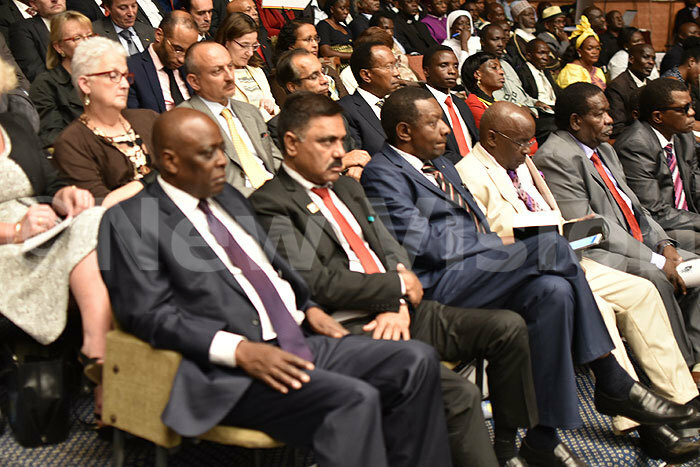
"The employment strategy will involve skills development including apprenticeship, together with the promotion of Value addition to projects that ultimately absorb excess labour. Government will:
- continue with affirmative action with the Youth Livelihood Programme. To date, the Programme has developed skills of 83,000 youth and provided financial support to implement almost 6,500 projects worth Shs. 45.5 billion. The programme builds the capacity of Youth to invest in their own innovative projects, and eventually develops them into entrepreneurs
- economically empower women by rolling out the Uganda Women Enterprise Programme (UWEP). This already been piloted in 20 Local Governments
- Value addition through Micro, Small, and Medium sized enterprises
5.35pm: Public sector
Public administration has been allocated sh537 billion as the public sector management gets sh1.1 trillion.
Minister Kasaija says that effectiveness of the public sector in delivery of public services depends on the efficacy of the systems and processes of public institutions. "In addition, public servants are supposed to facilitate private sector entrepreneurship and deliver quality services to the public."
He says that strengthening public financial management, budget transparency and accountability to fight corruption, performance contracting of Accounting Officers and salary enhancement of frontline service delivery workers are now being entrenched into the system.
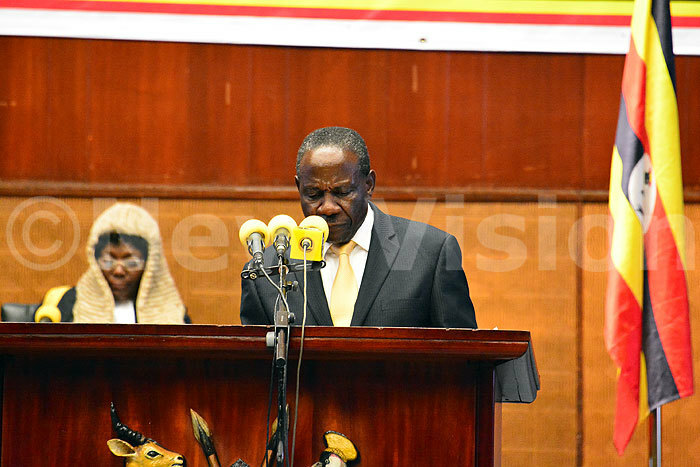
Kasaija: "In order to improve the entire Government project cycle, the processes including identification, design, appraisal, and approval of Government projects will be revamped with special focus on major projects in sectors like transport, energy, water and agriculture. Continued poor absorption of funds, particularly borrowed resources, which lead to suspension or cancellation of loans will not be entertained.
"Accounting Officers will forthwith be penalised for unsatisfactory performance of externally funded projects under their charge. The most affected sectors in terms of poor absorption have been Education and Water sectors where the proportion of projects with unsatisfactory performance was at 100%, followed by the Energy Sector at 92%, Health Sector at 86%, Agriculture at 80%, and Public Sector Management at 77%."
5.30pm: Water, Sanitation & Environment gets sh656b

Sh.1.5 trillion goes to security as sh1.1trillion is allocated to the justice, law & order sector

5.25pm: Sh1.8trillion for health
Kasaija says that "access to inclusive quality healthcare services is key to ensuring the wellbeing of Ugandans. During the financial year now ending, Government has sought to improve quality access to health by constructing and equipping hospitals and health centres. Consequently, health outcomes have improved resulting in a decrease in the disease burden.
"Reported cases of Malaria have reduced from 460 per 1,000 persons in 2013 to 367 per 1,000 persons in 2015. There has been a decline in the risk of a mother dying in the health facility while giving birth. Facility-based Maternal Mortality has reduced from 168 per 100,000 live births in 2013 to 146 per 100,000 live births in 2015. Similarly, infant mortality declined from 87 deaths per 1,000 live births in 2002 to 53 deaths per 1,000 live births in 2014."
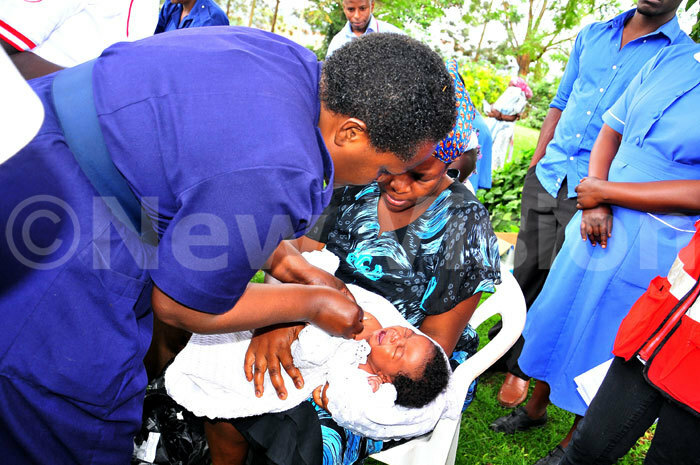
The minister says that in the 2016/17 financial year, focus will be placed on accelerating interventions to improve availability of healthcare workers at health centres, and enhancing maternal, newborn and child health in order to reduce the high number of deaths.
We understand that government will also continue to prioritise implementation of the National Prevention Strategy of HIV/AIDS as well as expand Anti-Retroviral Treatment (ART) coverage to 80%, with an emphasis on testing and treatment of the ‘most-at- risk' population, and elimination of Mother to Child Transmission.
5.20pm: Education sector
The finance minister says that the education sector seeks to "increase access to quality primary, secondary and tertiary education, with better learning and skills outcomes", something he explains will ensure proficiency in numeracy and literacy of the entire population and enhance productivity of the labour force.
The 2014 Census revealed that 72% of the population were reported to be literate, he says.
"In order to enhance tertiary level education, salaries of teaching staff in Public Universities have been increased with a sh50 billion allocation during the financial year now ending, in line with His Excellency's pledge to increase wages in a phased manner. I have provided a further sh78 billion in next year's budget for this purpose, including increases for salaries of Non-Teaching Staff in public universities.
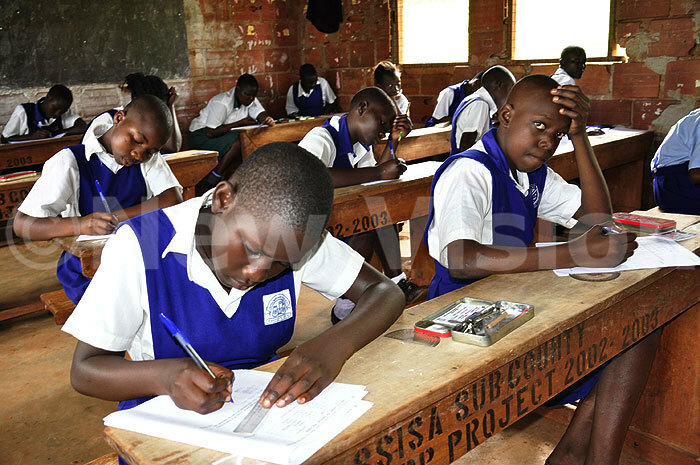
The minister reveals the priorities for implementation in the formal education sector as:
- Recruitment of tutors for the 20 Technical Institutes started this financial year. I have provided 6.672 billion for this purpose
- Operationalising three Public Universities in Soroti, Kabale and Lira which are to offer Science related programmes which are critical to the Economic Development of the Country. For this, a total of sh14.09 billion has been allocated
- Expand the Student Loan Scheme to cater for the Second Cohort of 1,000 University students and 200 students of Diploma courses to improve access to higher education. An additional sh6 billion has been provided for this purpose
- Increase of salaries of Primary teachers by 15% which will be the last instalment in Government's commitment to increase teachers' salaries by 50% in a phased manner. For this, an additional sh122 billion has been provided.
5.13pm: Sh93.8b for ICT
The minister says that the Information and Telecommunications Technology (ICT) sector has been allocated sh93.8 billion in the national budget.
He says that ICT supports development of the financial services sector, telecommunications, public financial management and scientific research and innovation and e-Government.
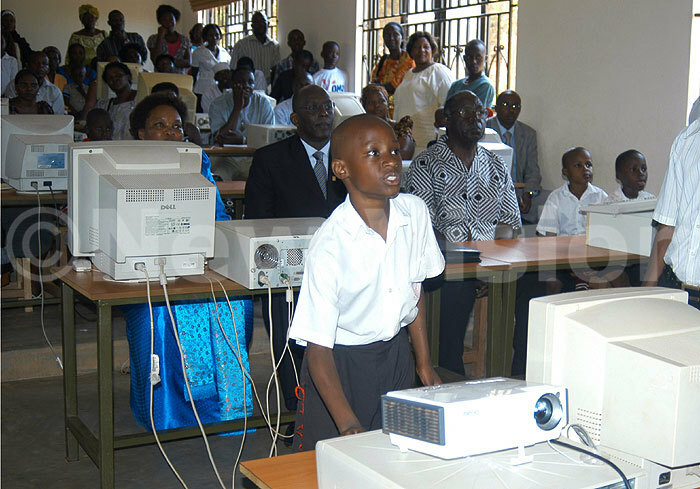
The sector, according to the minister, contributes 2.5% of GDP (2015), employs approximately 1.3 million Ugandans and raised sh484.4 billion in tax revenue collection in 2015. Telephone subscribers have increased from 19.5 million in 2013 to 23 million in 2015, while internet users grew from 8.5 million to 13 million in the same period.
"Land for construction of the ICT Park at Namanve Industrial Park has been secured and the feasibility study completed," says Kasaija.
He goes on to say that: "Starting with next financial year, the sector will improve access to high speed broadband services from 512 Kilobytes per second to 4 Megabytes per second and 30Mbps for rural and urban households respectively. This will support business productivity and facilitate communication. The National Backbone Infrastructure (NBI) will be extended to cover West Nile and Karamoja Regions under the Regional Communication Infrastructure Project, with support from the World Bank."
5.07pm: Electricity use up
The energy sector has been given sh2.4 trillion of the 2016/17 national budget, we learn, with Minister Kasaija saying that the use of electricity in Uganda's households increased from 7.8% to 20.4% and that the use of kerosene use dropped by 20%.
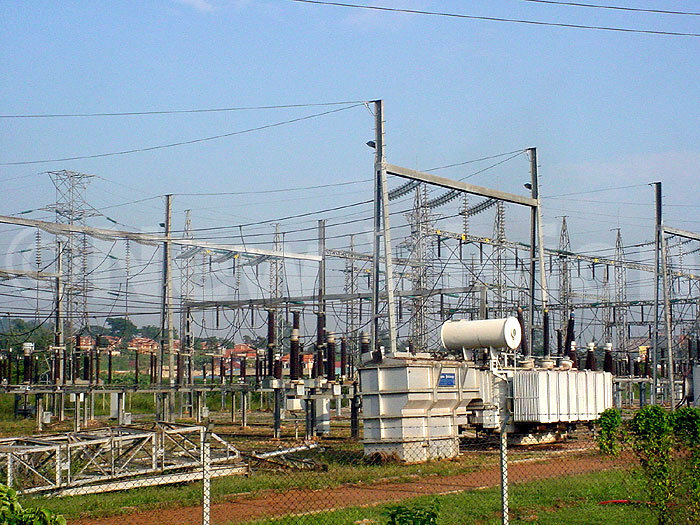
He says the Karuma and Isimba dams are now 27% & 25% complete, respectively, with completion expected in 2019 and 2018, respectively. The Hoima-Tanga pipeline to be developed through the private investment has been allocated sh182b.
4.55pm: Kampala Light Rail for 2019
In other developments to do with infrastructure, the minister says that sh118bn has been allocated for acquiring land for the Malaba-Kampala Eastern Standard Gauge Railway. Also, the Kampala Light Rail, which will cover east, south and northern areas of Kampala, is expected to kick off in three years' time (2019).
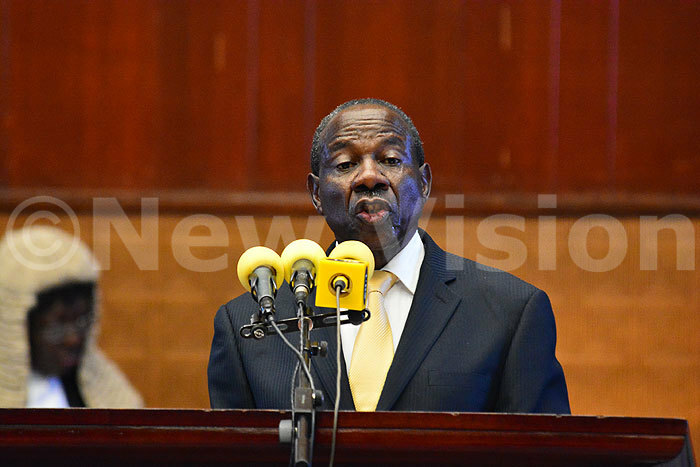
Meanwhile, we understand that the upgrade of Entebbe International Airport that includes remodelling of the passenger terminal and construction of a new cargo center have started.
4.50pm: More sh494b for works & roads
An additional sh494 billion has been allocated to the works and transport sector, announces the minister, increasing the allocation to the Works and Transport sector to sh3.827 trillion.
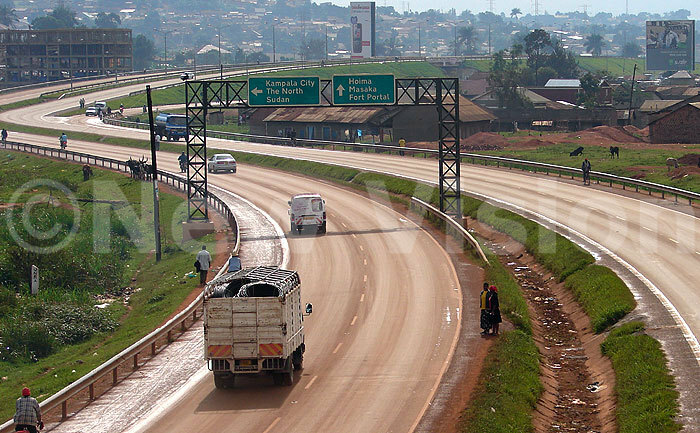
He says that Government has upgraded numerous gravel national roads to bitumen standard, and rehabilitated, reconstructed and maintained roads throughout the country. "Consequently, the proportion of national paved roads in fair to good condition increased from 64 per cent in 2011 to 70 per cent in 2015."
During the year, says the minister, these road projects have been substantially completed: Atiak-Nimule (35Km), Maracha and Koboko town roads (6.9Km), Kamwenge-Fortportal (65Km), Kafu-Kiryandongo(43Km), Bundibugyo Town roads(6Km), Rwentobo-Kabala-Katuna road(65Km), Ishaka-Kagamba (35Km), Seeta-Namugongo (7.2Km), Kyaliwajala-Kira(3.5Km), Naalya-Kyaliwajala(2.5Km), Namugongo ring road(1.8Km) and Shrine Access(1.8Km).
He goes on to name other roads that have seen "good progress in their completion".
4.45pm: More money for tourism
Minister Kasaija says that he has allocated sh188.8 billion to the tourism ssector next financial year, up from sh158.5 billion in the previous one.
This is after he talks of the sector's potential and challenges.
"Tourism adds US$ 2.5 billion to our GDP and approximately USD 1.5 billion in foreign exchange earnings annually. This translates to 9% of national output and 26% of export earnings. In the recent past, Uganda has hosted several tourism promoting events including the visit of His Holiness Pope Francis last November, and the Barcelona Football Club legends to Bwindi Impenetrable Forest and Murchison Falls National Parks. These events, among others, have for sure boosted Uganda's international image."

But despite these developments, the tourism sector "still faces serious challenges. Uganda ranks low in terms of leisure and holiday visitors, as a result of weak targeted destination marketing. At a regional level, security threats and disease outbreaks such as Marburg, lead to negative media and adverse travel advisories".
4.35pm: Agriculture share up
The minister says that the agriculture sector requires total overhaul and re-organisation, and as such reforms are necessary. "This will involve reforming land ownership and use, farmer training, input delivery, extension service provision, irrigation financing and marketing. These reforms are absolutely necessary if we are to ultimately commercialise agriculture."
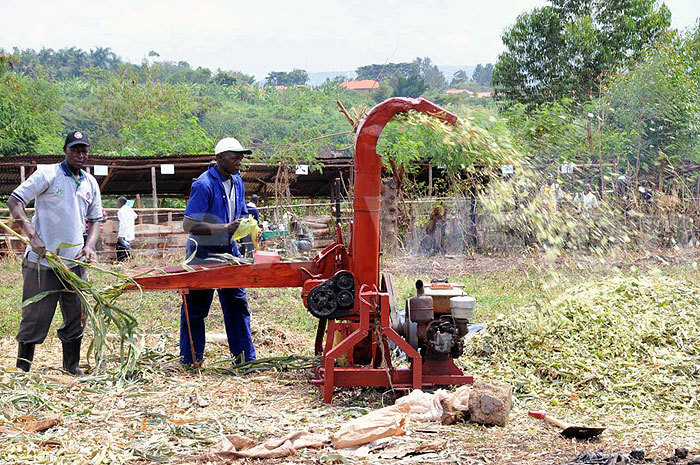
The agricultural sector's budget, says Kasaija, has been increased by sh343.46 billion to sh823.42 billion. He adds: "Together with funding to rural development interventions including rural electrification and feeder roads, funding to Agriculture and Rural Development is now sh1,985 billion, equivalent to 9.6% of the non-debt, non-discretionary budget".
4.30pm: 5.5% growth
Uganda's economy is projected to grow by 5.5% next financial year, says Kasaija. "Over the medium term, GDP growth is projected to average 6.3% per annum," he adds.
We also learn that government is set to "continue to implement appropriate fiscal and monetary policies to ensure macroeconomic stability".
4.28pm: Fiscal matters
So what was the fiscal performance like?
On domestic revenues, Minister Kasaija says that provisional outturn for domestic revenue for the financial year 2015/16 is sh11,598 billion, which is equivalent to 13.2% of Gross Domestic Product (GDP). He says this is higher than the planned target of sh11,333 billion.
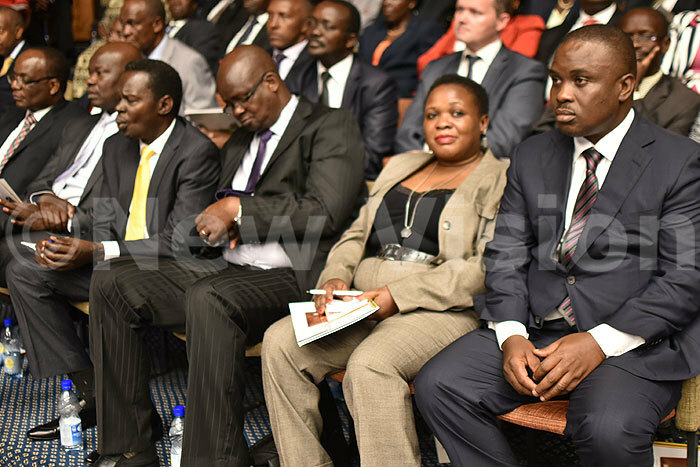
Meanwhile, on external and domestic financing, we learn that the provisional outturn for total external financing during the year is sh5,602 billion, of which project loan disbursements is sh4,355.4 billion and grants sh1,247 billion.
The minister goes on to offer a brief on the expenditures. Here, provisional outturn for total Government expenditure excluding domestic debt refinancing during the financial year will amount to sh18,666 billion, equivalent of 21.2% of Gross Domestic Product (GDP).
"The increase in total expenditure compared to last year reflects a deliberate commitment to improve our infrastructure in preparation for the take-off to the medium income status," he says.
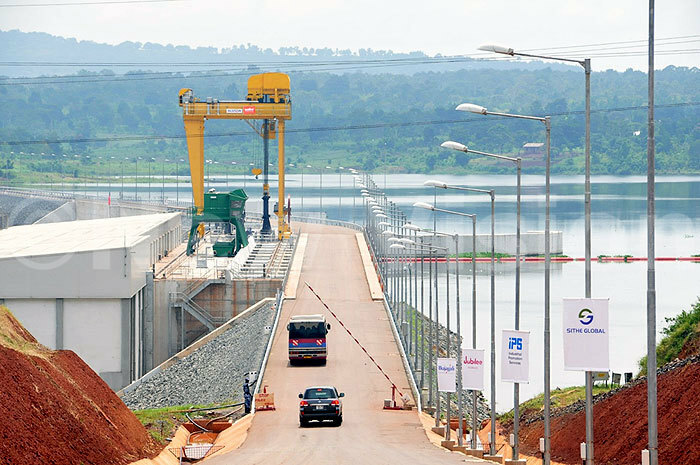
The fiscal deficit, according to the minister, is estimated at 6.4% of GDP in financial year ending. The deficit was largely financed by external borrowing both concessional and non-concessional, and to a lesser extent by domestic borrowing equivalent to 1.6% of GDP, we understand.
And what about public debt? Gross nominal public debt is estimated to be sh29,984 billion by June 30. Out of this sh18,665.7 billion is external debt (equivalent to US$ 5,382.9 million) and domestic debt sh11,319 billion.
The minister details that the increase in public debt financed priority infrastructure investments like the Karuma and Isimba Hydro power projects, rehabilitation and expansion of Entebbe Airport and Phase three of the National Transmission Back Bone Project, is meant to enhance productivity in all sectors of the economy.
4.17pm: Stable inflation
According to Kasaija, inflation has remained stable and in single digit "as planned". He adds that commercial bank lending rates have remained high largely due to the limited availability of long term capital. This, he adds, has resulted in an imbalance between the commercial bank financing products and the nature of the investments being undertaken.
Meanwhile, the growth of credit to the private sector has also declined to about 8% in March 2016 compared to about 17% during the same period a year before.
"Madam Speaker, while interest rates will continue to be determined by the market, Government will ensure fiscal and monetary policies prevent a significant rise in interest rates that crowd out the private sector."
4.14pm: Earnings: Exports < Imports
On balance of payments, Minister Kasaija explains that the country's earnings from exports are "far less than what we spend on imports" - something that results in a large trade imbalance as compared to Uganda's trading partners.
He says that the country's foreign exchange reserves remain adequate, estimated at US$ 2,925 billion, representing 4.4 months of future imports of goods and services in April 2016. The target recommended in the East African Community is 4.5 months of imports.
OK, up there, the sign < means 'less than'
4.10pm: Why lower growth?
The minister says that lower growth of the economy was a result of what he calls "three main factors":
- the sharp fall in international commodity prices such as coffee, tea, minerals, which form the bulk of Uganda's exports
- the decline in private sector credit growth as a result of high interest rates, and
- the strengthening of the US dollar as a result of the recovery in the US economy
But Kasaija says that in spite of these challenges, services continued to grow strongly rising by 6.6% from 4.5% last financial year.
"Economic activity in sub-Saharan Africa, including Uganda, has been lower than anticipated, primarily as a result of the sharp decline in commodity prices, which negatively affected export earnings," says the finance minister.
4.05pm: ‘Resilient economy'
The finance minister says that Uganda's economy has "remained resilient amidst a volatile global environment", with the overall national economic output estimated to have expanded by 4.6% in the 2015/16 financial year. This, he says, was helped by "robust growth" in the services and construction activities.

Kasaija is keen to point out that despite the fact that that growth rate is lower than the target of 5.0%, it is "significantly higher" than the projected growth for sub-Saharan Africa of 3% projected for the same period.
4.00pm: Uganda's target
"The overall national goal is to achieve a middle income status through commercialization of agriculture, acceleration of industrialization, and increasing production and productivity in all sectors of the economy," says the minister.
"Accordingly, the theme for the financial Year 2016/17 Budget is ‘Enhanced Productivity for Job Creation'.
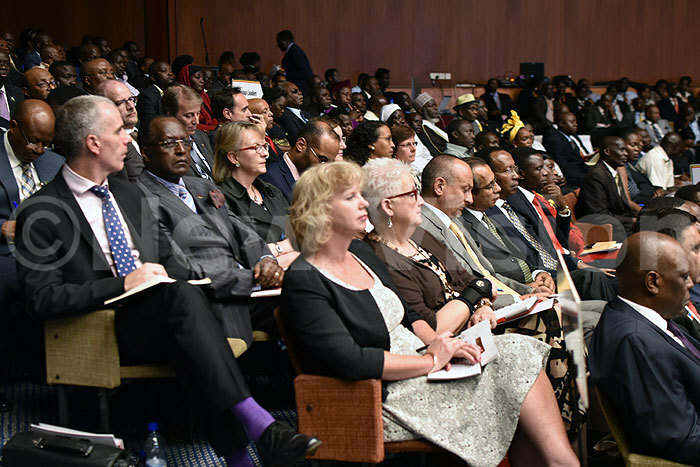
In his presentation, the minister will:
- Report on the performance of the economy, and the challenges faced in the financial year now ending, but also the future prospects
- Update Parliament on the Performance of the Financial Year 2015/16 Budget and progress made in the key selected sectors, implementation of measures to address challenges and priorities for the next financial year;
- Elaborate the medium term strategy underpinning the Financial Year 2016/17 budget, and
- Highlight the Financial Year 2016/17 revenue and expenditure framework and measures for enhancing domestic revenue mobilization
3.58pm: 'A summary of budget'
Finance minister Matia Kasaija starts off with his introductory remarks. He lets us know that the budget for Financial Year 2016/17 was approved by the 9th Parliament on May 3 this year - this being the year the general elections were held.
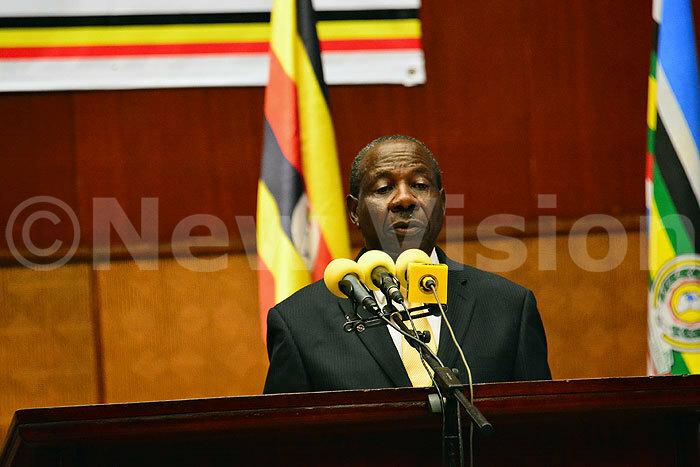
"My presentation today is therefore a summary of the budget as approved by Parliament," says the minister, and goes on to thank the MPs of the 9th Parliament for their "excellent cooperation in the preparation and the approval of the Budget".
Kasaija congratulates President Museveni upon his February 20 election victory and for "entrusting me" with the role of presenting the budget. He also congratulates Speaker Rebecca Kadaga and her deputy Jacob Oulanyah for their respective victories, and "to you honourable members for your election to the 10th Parliament".
|
Finance Minister Kasaija reads the 2016/17 National Budget. |
3.54pm: Next up . . .
Finance minister Matia Kasaija is cheered on as he rises and makes his way to the podium for what should be a long presentation.
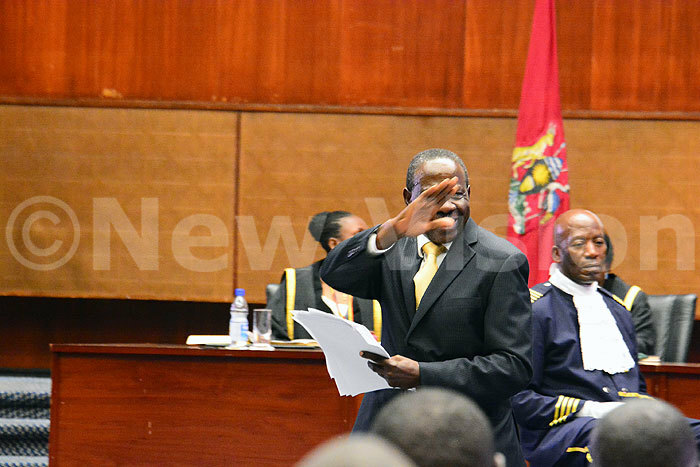
3.50pm: Uganda not 'supermarket'
The President stresses that Uganda needs to buy from other countries as well as sell her final products. The country cannot be "a supermarket" of other countries' goods, he says.
Now we know who will read the budget as the president says that Finance Minister Matia Kasaija, who "knoww these things", will read the details.
3.40pm: Growth rate: 'Not satisfied'
The president says that Uganda will earn an additional sh300b per year from the oil. With that, he says, "it will be much easier to fund the innovations of our scientists".
But he is keen to point out that he is "not satisfied" with the 4.6% growth rate of the 2015/16 financial year. He says uganda must hit the double digits.
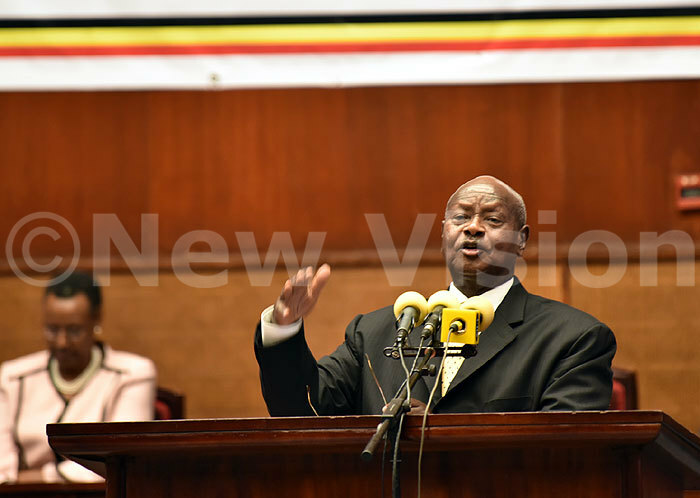
He also goes on to say that it's difficult to industrialize a country using commercial banks because of the hefty interest rates. As such, adds the Preisdent, "We will recapitalize the Uganda Development Bank (UDB) to provide low interest loans to Ugandans. According to him, if the cost of doing business is not lowered, "you can't develop".
"To attract more investors, they need to be assisted."
3.30pm: Oil pumping 'starts in 2020'
Museveni says with the security handled, Uganda has been able to see the existence of peace. With roads "improving", he adds that "we are beginning to have a surplus of electricity and are working on the modernization of our railway".
More importantly, the president says that in the next four years (2020), Uganda will start pumping oil. :We have resolved the issue of the refinery and the pipeline".

3.25pm: Brief interruption
Only moments into his speech, President Yoweri Museveni is briefly interrupted by a group of protesting placard-holding MPs who refuse to sit down. Their message is for the release of opposition politician Dr. Kizza Besigye. Museveni, who can't go any further amid the commotion, asks the Speaker for "protection", which she duly does and orders for order in the House.
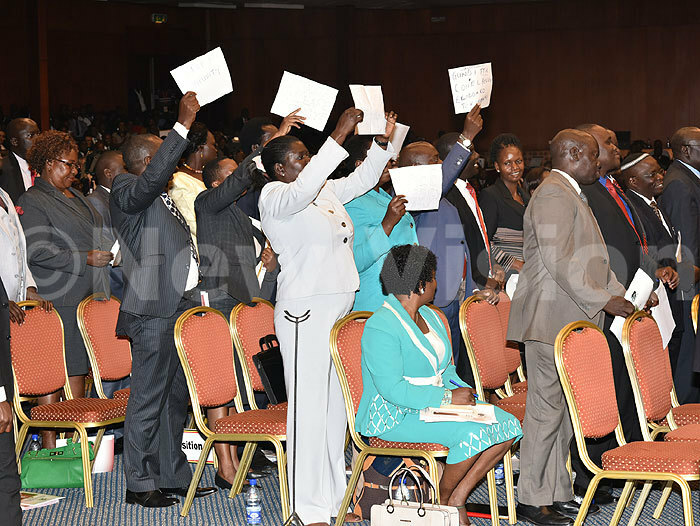
Once that's sorted, the President slaps on his spectacles and carries on with his speech, stating that he hopes there will be discipline.
3.15pm: Speaker's opening remarks
Parliament Speaker Rebecca Kadaga opens the session by welcoming everyone and explaining how the 2016/17 National Budget arrived to the point of being presented.

We haven't seen the briefcase today and with plenty of uncertainty looming large over who will read the budget today, Kadaga points out that today's reading of the budget "is different from the previous ones".
She also says that the National budget was considered and passed by the 9th Parliament.
2.55pm: Who will read the budget?
Who will read the budget, you ask? Stiil not clear up to this time. Ordinarily it should be the finance minister, but this time round, since Matia Kasaija has not been vetted and approved by Parliament, it's not known if he will present the budget.
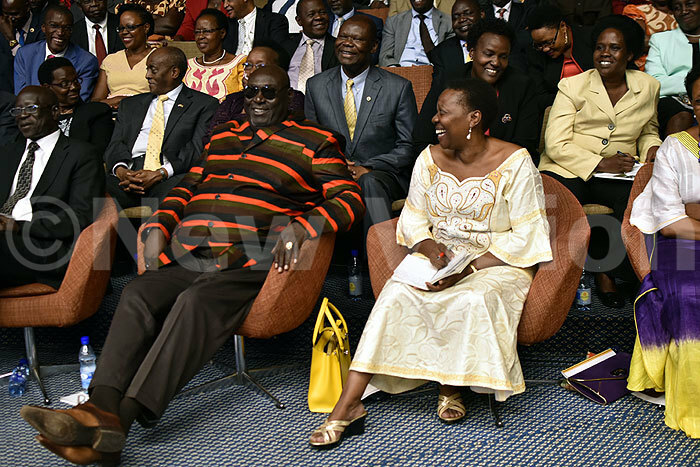
Earlier in the day, Parliament vetted and approved Edward Kiwanuka Ssekandi as Vice President-designate. Could the former Speaker of Parliament be the one to read this budget? Let's wait and see . . .
2.42pm: Anthems
All attention as the national and East African anthems are sung. It's a rather humid Wednesday afternoon.
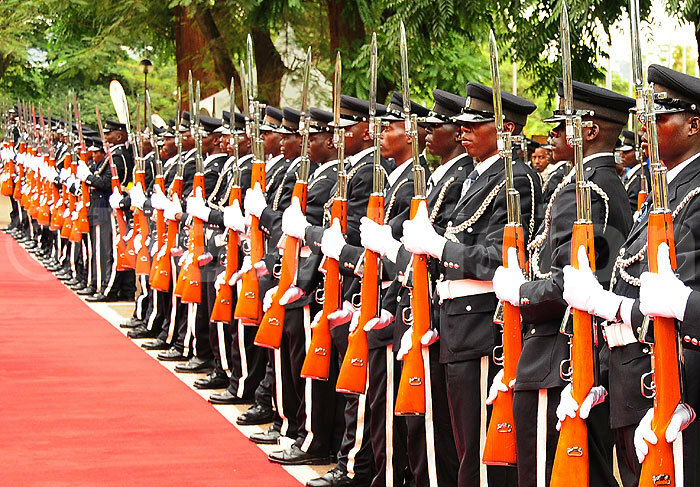
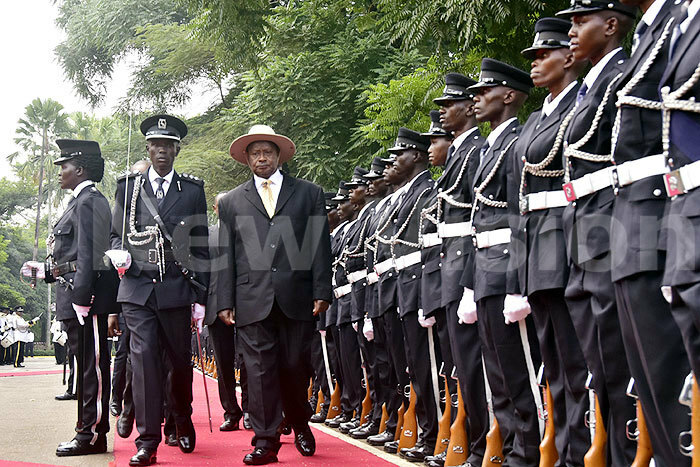
|
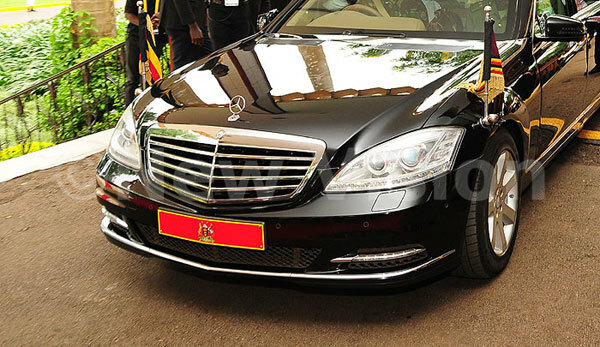
The wait is over. President Yoweri Museveni, the man everyone has been waiting for, arrives and is swiftly ushered down to the grounds for the ceremonial procedures. |
'Better ICT services'
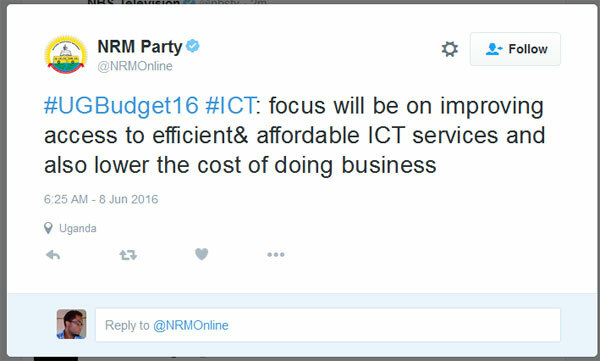
Join the discussion on Twitter using the hashtag #UGBudget16.
1.55pm: Arrivals
Here are some of the arrivals . . .
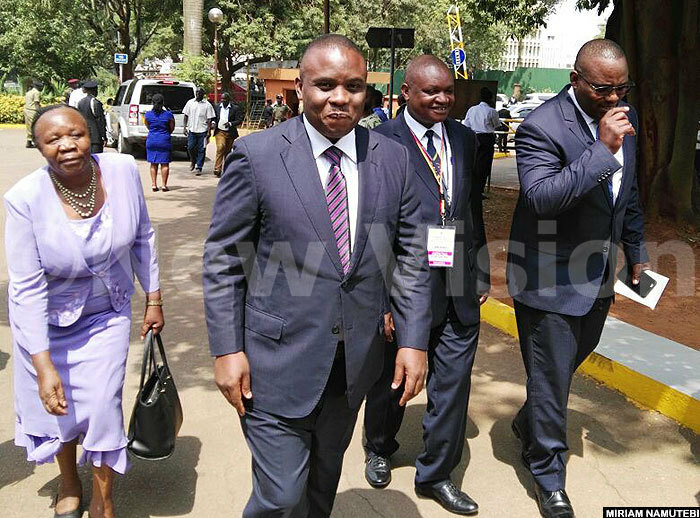
Newly sworn-in Kampala Lord Mayor Erias Lukwago showed up a little while ago in rather good spirits . . .
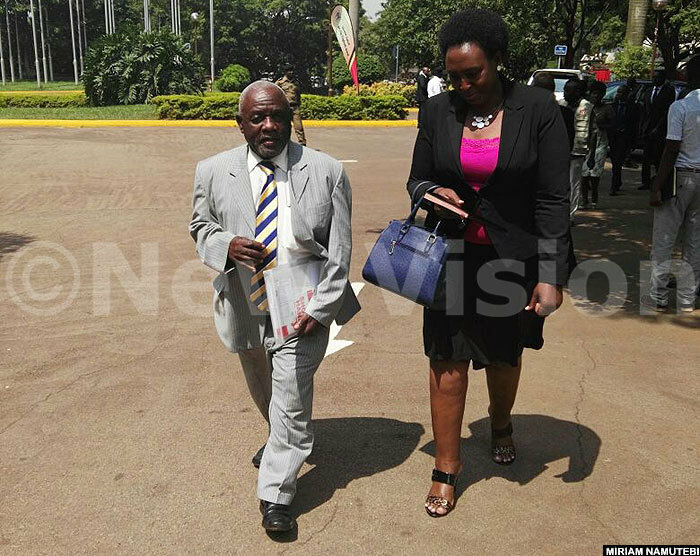
. . . as did Hajj Abdul Nadduli who was named on the new cabinet as minister without portfolio.
1.25pm: 'Enhancing productivity for job-creation'
And that there, ladies and gentlemen, is the theme for the 2016/17 National Budget. The conference hall at Serena is filling up by the minute as we draw closer the start of the National Budget reading.
1.10pm: One hour away . . .
The Kampala Serena International Conference Centre is beginning to see the arrival of officials in their various capacities ahead of the National Budget reading scheduled to start at 2pm local time.

The police band is playing some ceremonial tunes as politicians, religious leaders, dignitaries march into the hall where today's proceedings will unfold. It's a hot Wednesday afternoon meanwhile.
'Expensive paper'

While Naseya (checked two entries down) is concerned about the cost of transport, some other people have other concerns. Say, for instance, in that department that EVERYONE of us cannot do with. Need I repeat EVERYONE . . .
Clearly, Ford sure is legitimately concerned about that paper you need in that aforementioned department.
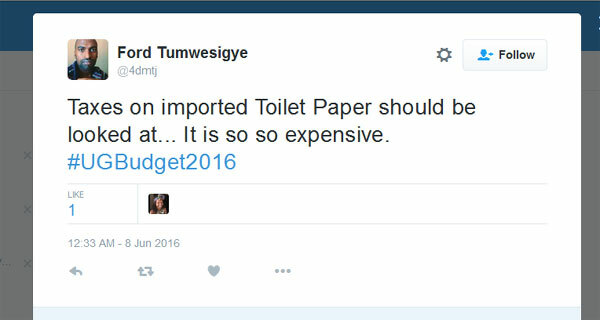
11.45am: More power for Africa's richest woman?
She is 43 and according to experts, now that she has been named head of Angola's oil company, Isabel dos Santos could soon be headed for more power -- but this time in politics.
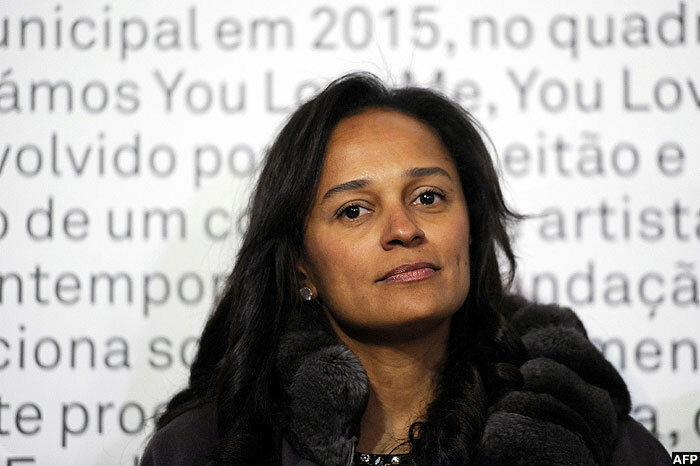
Her father, President Jose Eduardo dos Santos, appointed her as boss last week of state-owned oil firm Sonangol in a move that some analysts see as the first sign of succession plans for Angola's longtime ruler.
Read more HERE
Join the discussion
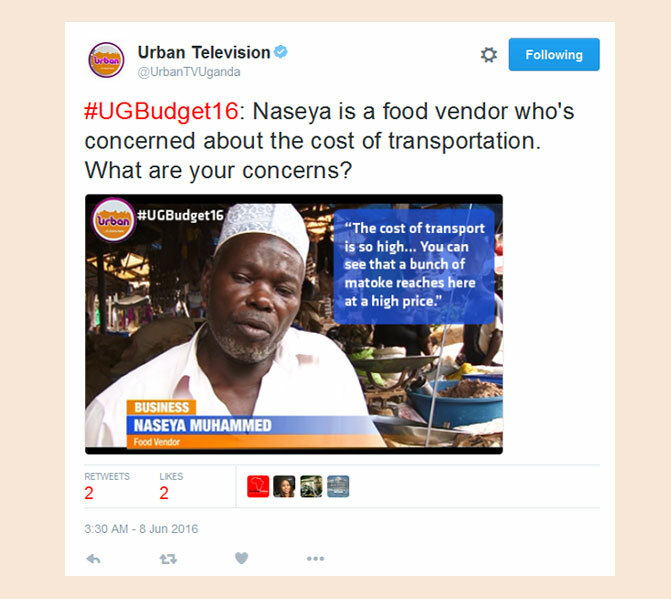
Vision Group's Urban TV tweets Naseya Muhammed's concern over the cost of transport. He has all reason to worry as he is a food vendor. The discussion around the 2016/17 national budget is going on online. On Twitter, use the hashtag #UGBudget16. You can also follow Urban TV HERE.
11.15am: Boost for agriculture
During the general elections campaigns, the President promised to increase funding
for the National Agricultural Advisory Services (NAADS). In the budget that gets released a little later today, sh824.2b was allocated to the Agriculture sector where NAADS falls, up from sh484.6b the previous year.
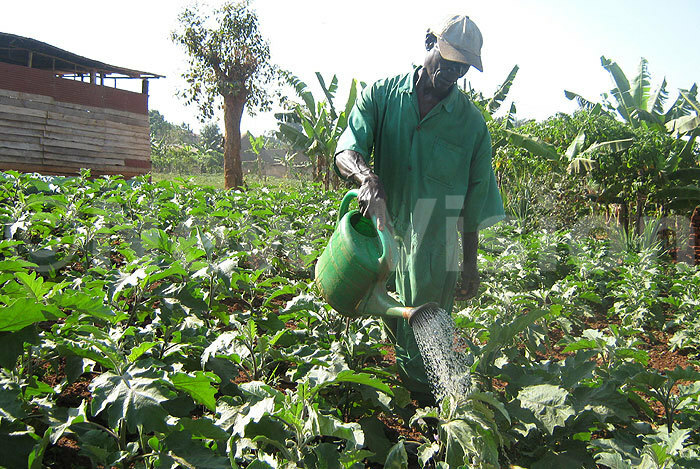
But the agriculture allocation is 3% of the sh26 trillion, which is far below the 10% agreed upon in 2003 Maputo by African governments and the 7% agreed upon in the NRM caucus of 2012.
10.55am: 'I will serve you'
In his brief remarks after being vetted and approved by Parliament, a visibly delighted Ssekandi promises to serve the whole country, and thanks President Yoweri Museveni for showing his confidence in him by reappointing him as his deputy.
"What I say during the day is what I will say at night," says Ssekandi.
|
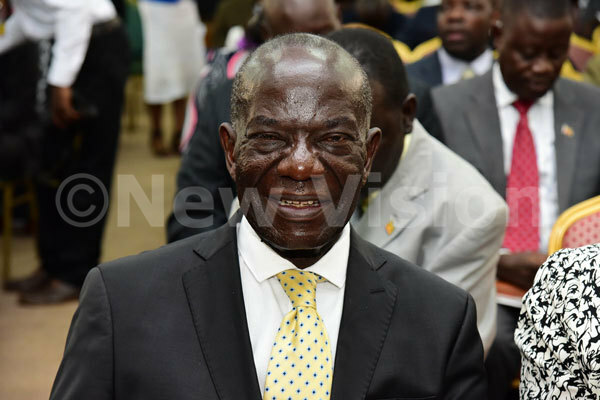
Edward Kiwanuka Ssekandi has been approved as Vice President, with a majority 280 MPs in favor of the motion to approve him and four against. Nine legislators abstained. |
10.32am: Many hands up for Ssekandi
The MPs in favor of the motion to approve the Bukoto County Central MP raise their hands, and it's a no-brainer that they are the majority. Ssekandi poised to sail through.
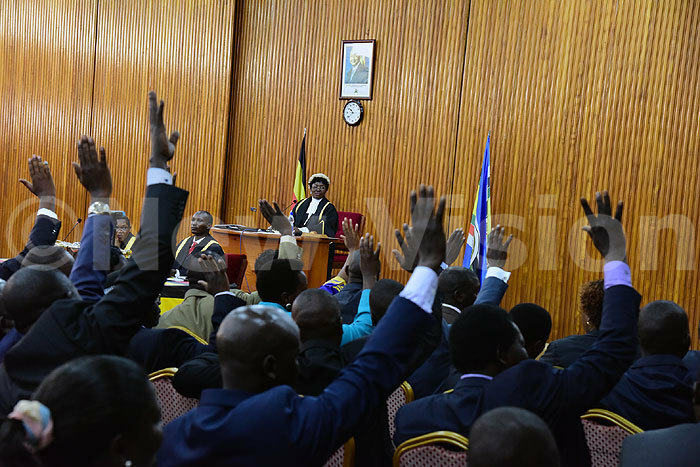
Earlier, Kalungu West MP Joseph Ssewungu had nothing but praise for Ssekandi, saying the 73-year-old restored the dignity of the Vice President's office.
Ssewungu talked of Ssekandi as being a reliable and "loyal" person who "you call at any time and he picks your call".
10.25am: Ssekandi being vetted
Vetting of Edward Kiwanuka Ssekandi for the position of Vice President is underway.
First, MP Odonga Otto seconds the motion to approve Ssekandi, who before becoming Vice President five years ago, served as Uganda's Speaker of Parliament, deputized by current Speaker Kadaga (2001 to 2011).
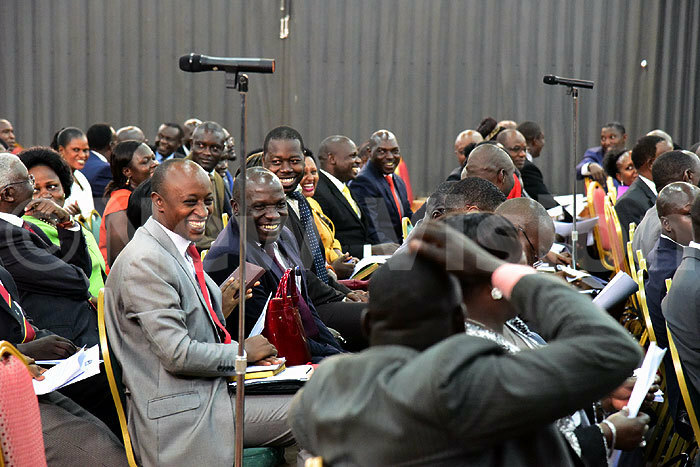
Otto implores the Vice President-designate to "use your position" to see that the sh11.63trillion presidential pledges are met. He also urges President Museveni to "unconditionally forgive" his long-time political opponent, FDC's Dr Kizza Besigye, saying that Uganda needs to "heal" from "these political problems".
10.20am: Leader of Opposition approved

In the same sitting, Speaker of Parliament Rebecca Kadaga has also approved Winifred Kiiza as the Leader of Opposition in Parliament and Ssemujju Nganda as Opposition Whip.
|
|
9.50am: In brief
So here's a graphic put together by Brian Sekamate to illustrate a summary of the budget that will be presented today afternoon in Kampala . . .
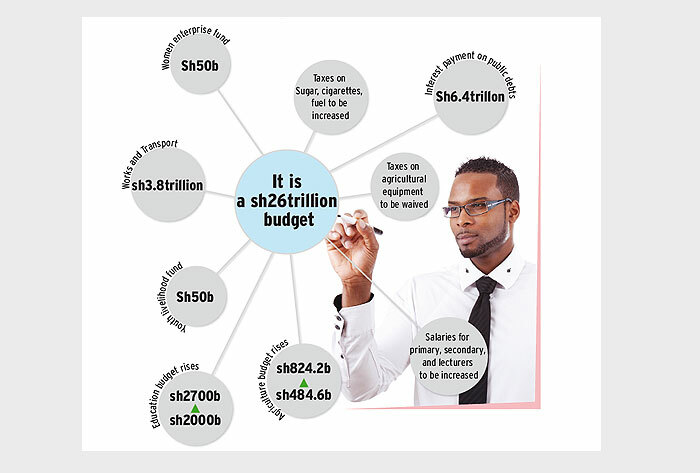
9.45am: Good morning!
Hello and a warm welcome to live coverage of Budget Day. Later today, the 2016/17 National Budget of Uganda will be read to the public. For now will build up to that with analyses and related stories. This time, it's a sh26 trillion budget.
